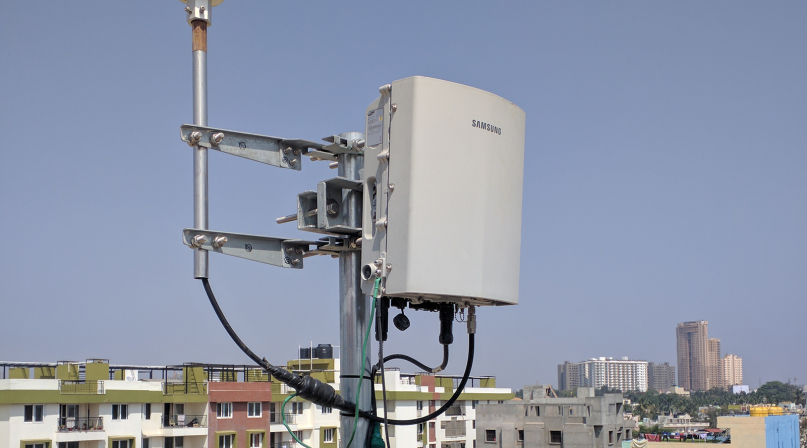FCC could ax environmental, historic reviews to speed 5G

FCC voting March 22 to cut environmental assessments and historic preservation reviews to speed 5G deployment
The Federal Communications Commission (FCC) is set to vote March 22 on doing away with environmental assessments and historic preservation reviews in order to speed up the deployment of the 5G network, according to the FCC meeting agenda.
Fifth-generation wireless systems or 5G “small cells” are improved networks deploying the newest mobile wireless; a formal standard is yet to be set. Telecom firms want to locate the next generation of wireless technology on utility poles and street light poles in counties across the country. The “small cells” include antennas, meters, cables and power boxes.
“Our federal historic and environmental review procedures are not suited to support 5G deployments, which can be smaller than a backpack and attach to existing structures,” FCC Commissioner Brendan Carr said recently at the Consumer Technology Association’s 5G Day.
The FCC projects that by doing away with the reviews, it will reduce the regulatory costs of small cell deployment by 80 percent, cut deployment timelines in half and expand 5G deployments.
The FCC commissioners will vote on declaring the citing of such wireless facilities as neither the “federal undertakings” or “major federal actions” that trigger reviews.
“The Commission is using the wrong standard in deciding whether this is a major federal undertaking,” said Gerard Lederer, partner, Best Best & Krieger, who specializes in telecom, cable and small cell law. “The whole point of the pleading is that the FCC is streamlining a process without regard to consideration of impacts. That process, combined with limits on local and state authority … can easily result in construction of facilities that are quite large and intrusive, and that, as the Commission suggests, number in the thousands.
“There is no question that these facilities could not be built without a federal license; that the issuance of that license, combined with preemptive rules means that local and state control is limited; and that numerically, the licensed facilities are intended to be placed frequently and throughout areas that may be historically significant or environmentally sensitive.”
Montgomery County, Md. Councilmember Hans Riemer, who sits on NACo’s Telecommunications and Technology Steering Committee and was appointed to the FCC’s Intergovernmental Advisory Committee, described the possibility of the FCC doing away with the reviews as “...just a good old fashioned land grab, that’s all it is — there are a lot of problems.”
Ken Schmidt, president of Steel in the Air Inc., which represents property owners and cities in negotiations over cell-tower lease fees with telecommunications companies, told the Center for Public Integrity that wireless carriers want to receive lower annual charges for attachments to public property similar to what utilities receive but without the obligation to provide universal service that cities typically require of utilities.
If wireless carriers want low fees like utilities receive, “then great, act like a utility, and build out to the poor areas, provide subsidized coverage to poor constituents,” Schmidt said.
Attachments
Related News

National Association of Counties Launches Initiative to Strengthen County Human Services Systems
The National Association of Counties (NACo) announces the launch of the Transforming Human Services Initiative, a new effort to help counties modernize benefits administration, integrate service delivery systems and strengthen county capacity to fulfill our responsibility as America’s safety net for children and families.


